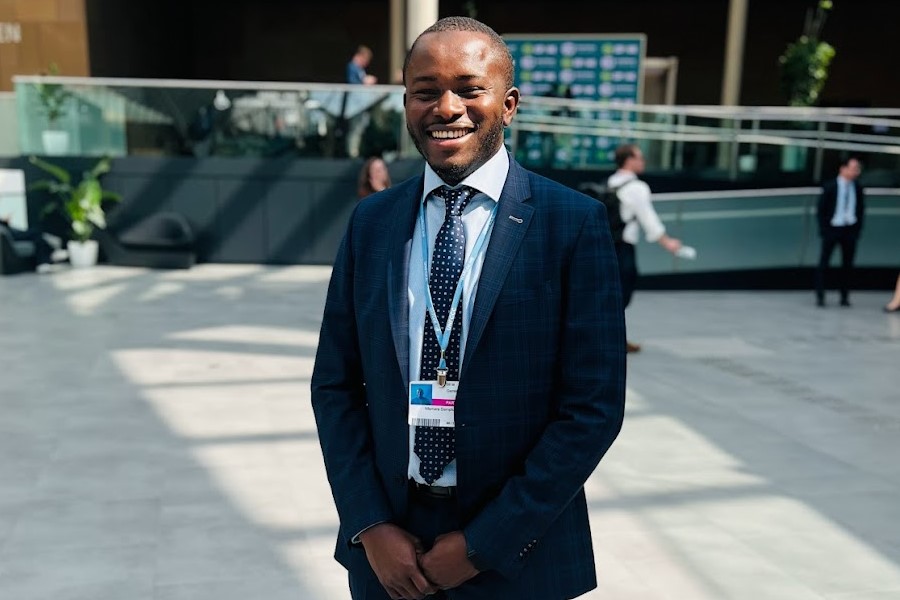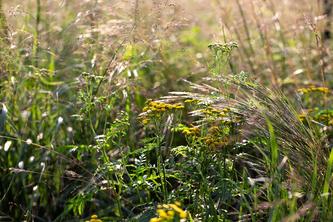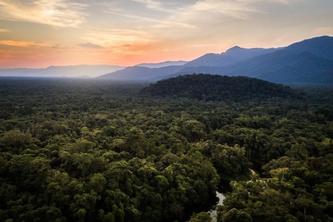
The United Nations 28th Conference of the Parties (COP28) will be held in Dubai November 30 to December 12, bringing together leading experts to assess global progress on climate change and negotiate solutions to the defining environmental and social challenges of our time. This year’s conference prominently features negotiations on how the global community will operationalize the COP27 Loss and Damage Fund, which seeks to create a mechanism for developing countries to receive financial support for the harmful impacts of a changing climate that they have done little to cause.
Nfamara K Dampha, a research scientist in natural capital and ecosystem services at the University of Minnesota’s Institute on the Environment (IonE), participated in COP27 negotiations in Sharm el-Sheikh, Egypt and in this summer’s discussions in Bonn, Germany. Dampha will return to COP28 negotiations and can speak to the 30-year history of loss and damage discussions and what we can anticipate from this year’s conference.
Nfamara K Dampha, Ph.D.
“The Loss and Damage Fund aims to address climate change impacts such as frequent and intense floods, severe drought, heat waves, rising sea levels and loss of ecosystems that disproportionately affect poorer, less-developed nations who share little of the blame for the changing climate. The fund is also designed to confront forced displacement and loss of culture, language and identity. This year, the Transitional Committee (TC) will submit recommendations for the fund’s utilization. Unfortunately, the TC proposal fails to hold developed countries accountable for paying their fair share of climate-attributed loss and damage to the fund based on their contributions to cumulative historical emissions.”
“This proposal is at odds with the equity principle of the United Nations Framework Convention on Climate Change that calls for developed country Parties — rich nations, mostly in the global north — to take the lead in mitigating climate change and provide finance, capacity building and technology transfer to address the specific needs and circumstances of vulnerable, poor developing countries in the global south.”
“The unfortunate reality is that many developed countries see acts of climate justice as charity to poor countries disproportionately impacted by climate catastrophes rather than a moral, ethical and legal obligation. This is unacceptable to billions of people constantly devastated by ongoing climate genocide and displacement.”
Nfamara K Dampha is a research scientist in natural capital and ecosystem services at IonE. Dr. Dampha serves on the Natural Capital Project (NatCap) Leadership Team where he catalyzes the University of Minnesota and IonE communities of faculty, staff and students toward high-impact interdisciplinary research. Dampha seeks to strengthen IonE and NatCap’s partnership with local and international stakeholders to advance natural capital accounting and ecosystem service assessment and valuation to inform decision-making for building a sustainable future.
-30-
About the Institute on the Environment
The University of Minnesota Institute on the Environment supports research across the disciplines, develops the next generation of global leaders and builds transformative partnerships — in service of solving our world's greatest challenges. IonE’s mission is to lead the way to a future in which people and planet prosper together. Learn more at environment.umn.edu.
About “Expert Alert”
University of Minnesota experts can provide commentary, insights and opinions on various news topics. Find selected experts on the University’s Experts Guide or send requests to [email protected].
- Categories:
- Agriculture and Environment
- Climate Change





